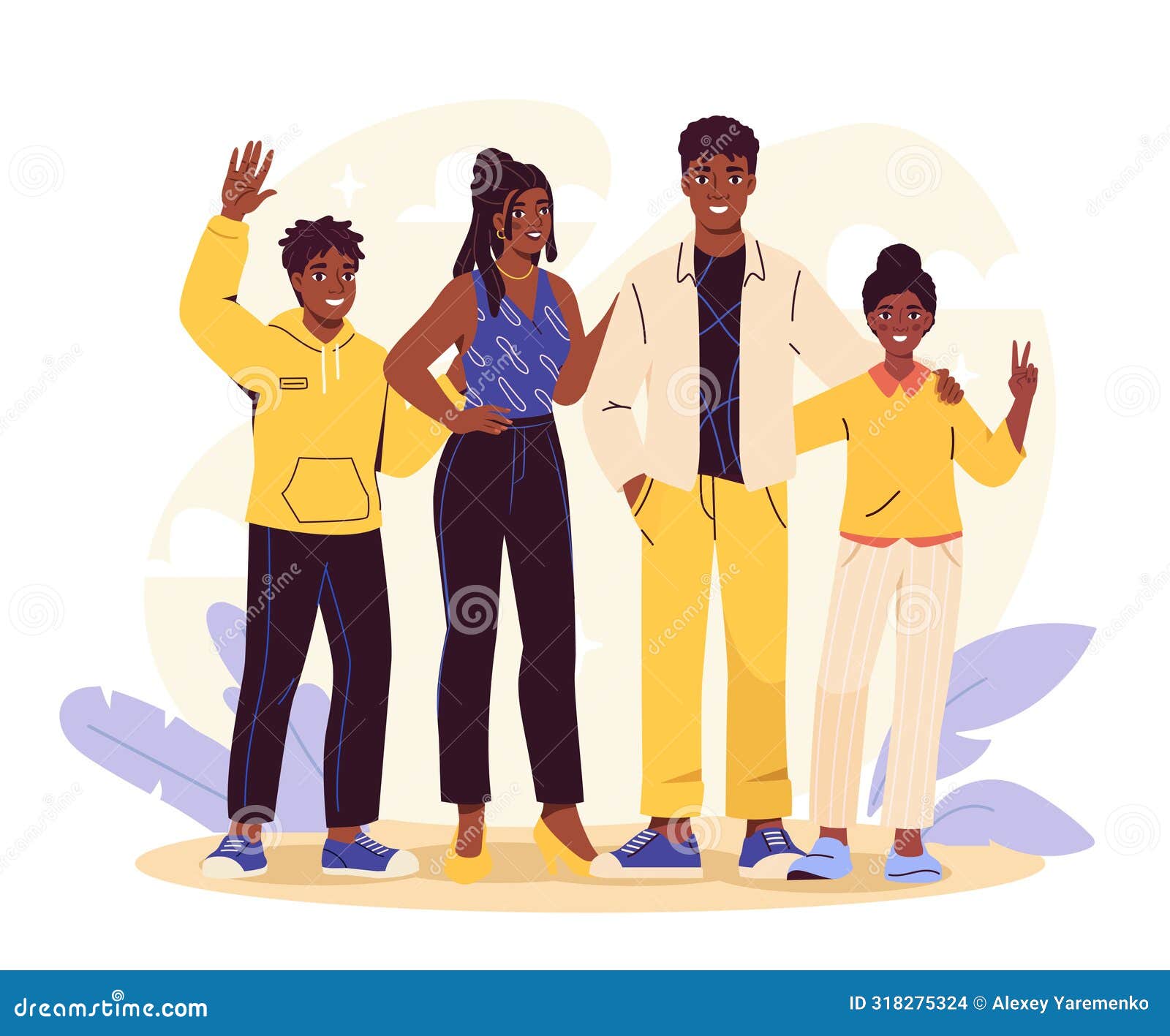African American Nationality: Exploring Identity, History, And Culture
When we talk about African American nationality, we're diving deep into a story that's as rich and complex as it gets. This isn't just about legal status or citizenship—it's about culture, resilience, and a legacy that has shaped America in countless ways. African Americans have carved out a unique identity that defies easy definitions and continues to evolve with each passing generation. So, buckle up because we're about to take a journey through history, culture, and the vibrant tapestry of what it means to be African American today.
Imagine this: a nation within a nation. That's kind of what African American nationality represents. It's more than just being an American citizen; it's about a shared history, struggles, triumphs, and dreams that have been passed down from one generation to the next. This identity isn't static—it grows, changes, and adapts, but at its core, it's about strength and community.
Now, why does this matter? Well, understanding African American nationality isn't just about learning history—it's about recognizing the contributions, challenges, and achievements of a people who have been central to shaping the United States. Whether it's music, art, politics, or social justice, African Americans have left an indelible mark on the nation's identity. So, let's dig in and explore what makes this nationality so unique and powerful.
Understanding the Concept of African American Nationality
Defining African American Nationality
Let's break it down. African American nationality isn't just about being born in the U.S. and having African ancestry. It's about a shared sense of identity shaped by experiences, traditions, and cultural practices that have evolved over centuries. This identity is deeply rooted in the African diaspora, the transatlantic slave trade, and the ongoing fight for equality and justice.
Here's the thing: African American nationality is fluid. It means different things to different people. For some, it's about pride in their heritage and the contributions of their ancestors. For others, it's about navigating the complexities of race and identity in a society that often tries to define them. It's a blend of personal and collective experiences that create a unique sense of belonging.
And let's not forget the global context. African American culture has influenced movements and communities worldwide, from the Civil Rights Movement to modern-day activism. It's a nationality that transcends borders and speaks to universal themes of justice and equality.
- Michael Wilding Jr A Deep Dive Into His Life And Legacy
- Diddy Legal Defense Understanding The Complexities And Implications
The Historical Roots of African American Nationality
From Enslavement to Emancipation
The story of African American nationality begins with the transatlantic slave trade, a dark chapter in history that brought millions of Africans to the Americas. Enslaved Africans were stripped of their names, languages, and cultures, but they never lost their spirit. Over time, they created new traditions, blended old ones, and built communities that became the foundation of African American identity.
Emancipation was a turning point, but it wasn't the end of the struggle. The 13th Amendment abolished slavery, but it didn't erase the systemic racism and discrimination that persisted. African Americans had to fight for their rights, their voices, and their place in society. This fight continues to shape the evolution of African American nationality today.
Here's a quick timeline:
- 1619: The first enslaved Africans arrive in Jamestown, Virginia.
- 1865: The 13th Amendment abolishes slavery.
- 1964: The Civil Rights Act is passed, prohibiting discrimination based on race.
- 2008: Barack Obama becomes the first African American president of the United States.
African American Nationality in Modern Times
Identity and Representation in the 21st Century
Fast forward to today, and African American nationality is as vibrant and dynamic as ever. It's reflected in everything from art and literature to politics and pop culture. Artists like Kendrick Lamar, authors like Toni Morrison, and activists like Angela Davis have all contributed to the ongoing conversation about what it means to be African American.
But it's not just about representation—it's about empowerment. African Americans are leading movements, shaping policies, and challenging the status quo. Whether it's through Black Lives Matter or grassroots activism, the fight for justice and equality continues to define this nationality.
And let's talk about intersectionality. African American nationality isn't just about race—it intersects with gender, class, sexuality, and more. This complexity adds depth and richness to the identity, but it also highlights the ongoing struggles for inclusivity and representation.
Cultural Contributions of African Americans
The Impact on Music, Art, and Literature
African American culture has had a profound impact on the world. From jazz and blues to hip-hop and R&B, the music of African Americans has influenced countless genres and artists. Think about it: without African American musicians, we wouldn't have the likes of Louis Armstrong, Aretha Franklin, or Beyoncé.
Art and literature are no different. African American artists have created works that challenge, inspire, and transform. From the Harlem Renaissance to contemporary artists like Kehinde Wiley, the contributions of African Americans to the arts are undeniable.
Here are a few examples:
- Jazz: Louis Armstrong, Duke Ellington
- Literature: Toni Morrison, James Baldwin
- Visual Arts: Jacob Lawrence, Kara Walker
Challenges Faced by African Americans
Racism, Discrimination, and Systemic Inequality
No conversation about African American nationality is complete without addressing the challenges faced by this community. Racism, discrimination, and systemic inequality continue to be major obstacles. Whether it's in education, healthcare, or the criminal justice system, African Americans often face barriers that others don't.
But here's the thing: resilience is a defining characteristic of African American nationality. Despite these challenges, the community continues to thrive and push for change. Movements like Black Lives Matter have brought global attention to issues of racial injustice, and the fight for equality remains strong.
Statistics tell part of the story:
- According to the U.S. Census Bureau, African Americans make up about 13% of the U.S. population.
- A report by the NAACP highlights that African Americans are disproportionately affected by poverty and unemployment.
- The Sentencing Project reports that African Americans are incarcerated at nearly six times the rate of whites.
African American Nationality and Global Influence
Spreading Awareness and Solidarity Worldwide
African American nationality isn't confined to the United States. It has a global impact, influencing movements and communities around the world. From the Pan-African movement to modern-day activism, African Americans have played a crucial role in promoting solidarity and understanding across cultures.
This influence is seen in everything from fashion to politics. African American styles, music, and ideas have crossed borders and inspired people worldwide. It's a testament to the power of culture and the universal appeal of the African American experience.
And let's not forget the role of technology. Social media platforms have amplified African American voices and allowed for global connections. Hashtags like #BlackLivesMatter have sparked conversations and movements that transcend national boundaries.
The Role of Education in African American Nationality
Empowering Through Knowledge
Education has always been a key component of African American nationality. From the days of slavery, when learning to read was an act of defiance, to modern-day efforts to close the achievement gap, education has been a powerful tool for empowerment.
Today, African American educators, scholars, and activists are working to ensure that history and culture are accurately represented in schools and universities. This includes teaching about the contributions of African Americans and addressing the systemic issues that affect educational opportunities.
Here are some key initiatives:
- The establishment of Historically Black Colleges and Universities (HBCUs).
- Curriculum reforms that include African American history and culture.
- Programs aimed at increasing access to higher education for African Americans.
Future Directions for African American Nationality
Where Do We Go From Here?
Looking to the future, the evolution of African American nationality is shaped by ongoing conversations about race, identity, and justice. As society becomes more diverse and interconnected, the role of African Americans in shaping the national narrative will only grow.
Technology, globalization, and changing demographics will all play a part in this evolution. African Americans will continue to lead movements, influence culture, and push for change. The challenge will be to ensure that progress is inclusive and equitable for all.
And let's not forget the importance of allyship. Supporting African American voices and amplifying their stories is crucial for creating a more just and equitable society. Whether it's through activism, education, or everyday interactions, everyone has a role to play in this journey.
Conclusion: Celebrating African American Nationality
As we wrap up this exploration of African American nationality, it's clear that this identity is complex, powerful, and ever-evolving. It's a story of resilience, creativity, and community that continues to inspire and transform. From its historical roots to its modern-day influence, African American nationality is a testament to the strength and spirit of a people who have overcome so much.
So, what can you do? Start by learning more about the history and culture of African Americans. Engage in conversations, support initiatives, and be an ally in the fight for justice and equality. Together, we can create a world where African American nationality is celebrated and respected in all its forms.
And don't forget to share this article, leave a comment, or explore more content on our site. The more we talk about these issues, the more we can make a difference. So, let's keep the conversation going and celebrate the richness of African American nationality!
Table of Contents
- Understanding the Concept of African American Nationality
- Defining African American Nationality
- The Historical Roots of African American Nationality
- From Enslavement to Emancipation
- African American Nationality in Modern Times
- Identity and Representation in the 21st Century
- Cultural Contributions of African Americans
- The Impact on Music, Art, and Literature
- Challenges Faced by African Americans
- Racism, Discrimination, and Systemic Inequality
- African American Nationality and Global Influence
- Spreading Awareness and Solidarity Worldwide



Detail Author:
- Name : Fletcher Hickle
- Username : ruthe.mcclure
- Email : collier.emelie@gmail.com
- Birthdate : 2006-04-05
- Address : 970 Javier Mission Apt. 430 Shieldsborough, CT 67033-5099
- Phone : +1 (959) 214-5144
- Company : Dooley-Renner
- Job : Forming Machine Operator
- Bio : Debitis voluptatem odit laborum omnis aut ut repudiandae consequatur. Dolores inventore asperiores necessitatibus quia.
Socials
linkedin:
- url : https://linkedin.com/in/kautzer2008
- username : kautzer2008
- bio : Dicta explicabo molestiae et explicabo.
- followers : 2368
- following : 359
facebook:
- url : https://facebook.com/garrisonkautzer
- username : garrisonkautzer
- bio : Minima ut accusamus odio quia et nesciunt odio.
- followers : 5277
- following : 1876
instagram:
- url : https://instagram.com/gkautzer
- username : gkautzer
- bio : Id autem tempore sit quod dolorem ut et. Blanditiis ut ullam qui.
- followers : 4241
- following : 1559